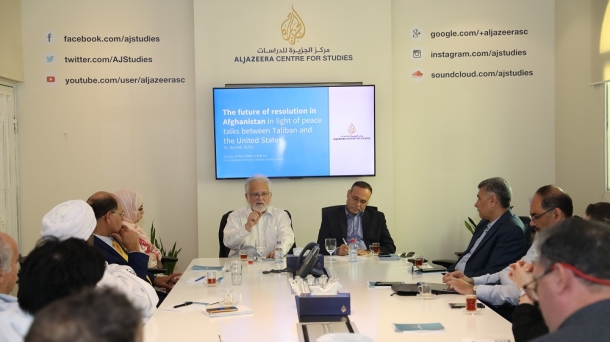
Al Jazeera Centre for Studies hosted Dr. Barnett Rubin, Director at the Center on International Cooperation at New York University and a leading expert on Afghanistan, in a roundtable discussion in Doha around the theme “The Future of Resolution in Afghanistan in light of US-Taliban peace” on 31 March 2019. Rubin addressed the complexity of the desired political solution in Afghanistan within a nuanced historical and geographic background about the country. He explained how various centres of power have maintained their stakes in the past 18 years since the US War in the country. From a historical perspective, he addressed Afghanistan’s position in the conflict between the Soviet Union and the United States, during the Cold War era; and its strategic significance vis-à-vis the regional players such as Russia, Iran, China and Pakistan, while Afghanistan’s stability remains pivotal in serving their interests of all the stakeholders.
As the Doha-mediated US-Taliban negotiation process will be resumed later in April 2019, Dr. Rubin foresees several challenges, most notably: an agreement on the format and nature of the political process after the withdrawal of the US troops from Afghanistan, concerns about the outbreak of a civil war between different ethno-political factions if the political settlement is not approved of by most Afghan forces, and the integration of Taliban forces into the Afghan army and security apparatuses.